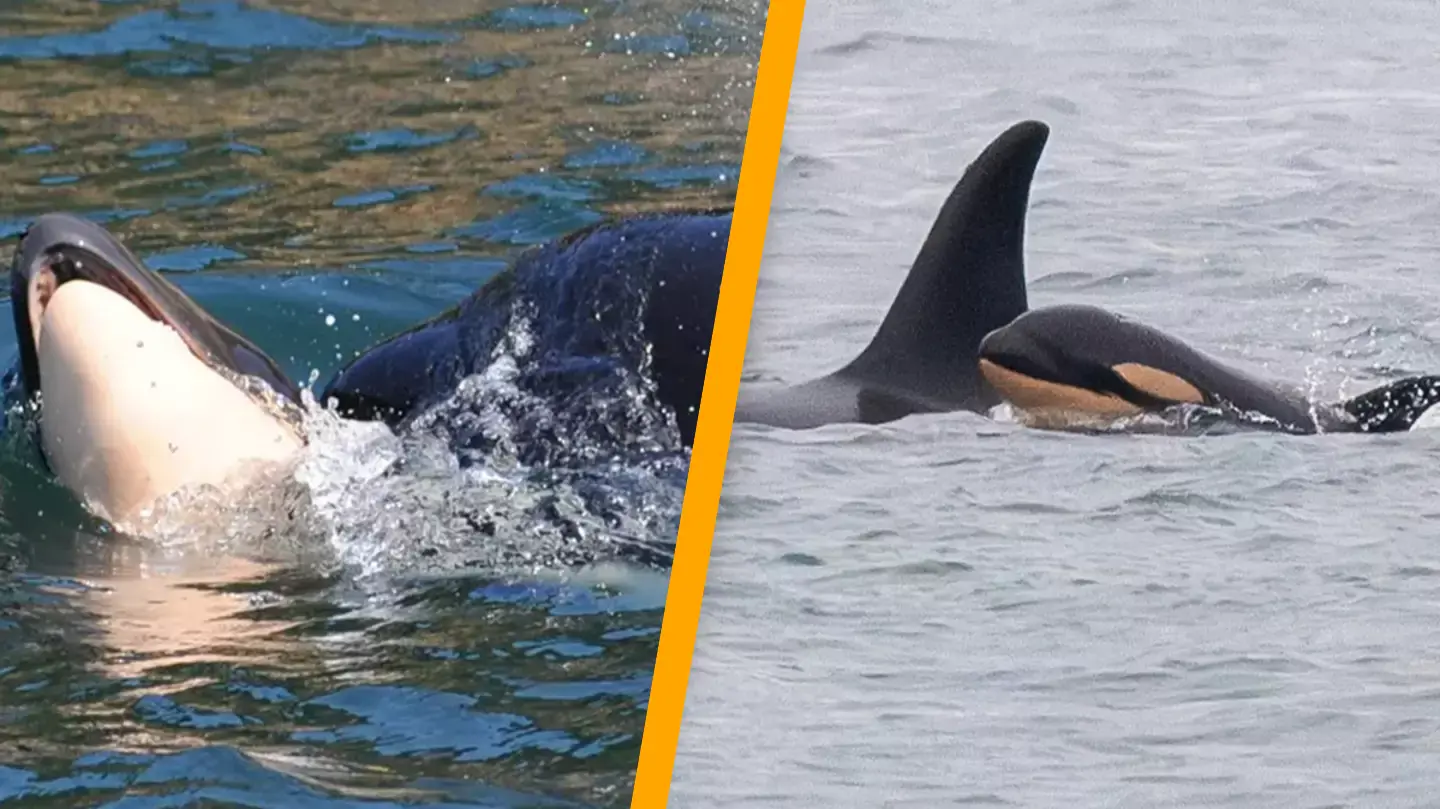An orca, known as J35, who famously carried her deceased calf for over 1,000 miles across the ocean for more than two weeks, has now suffered the loss of another young one.
J35, part of a group studied by researchers, gave birth to a daughter named J61 shortly before Christmas.

This marks the third calf that J35 has given birth to, with her second born in 2020 being healthy. Unfortunately, concerns arose shortly after the new calf joined the J-pod.
The J-pod is an endangered group of Southern Resident orcas that inhabit the Pacific waters between British Columbia, Canada, and Washington State.
On Christmas Eve, the Center for Whale Research shared on Facebook: “The team, including multiple experienced killer whale researchers, have expressed concern about the calf’s health based on the behavior of both J35 and J61.
“Early life is always dangerous for new calves, with a very high mortality rate in the first year. J35 is an experienced mother, and we hope that she is able to keep J61 alive through these difficult early days.”

The organization expressed their eagerness to continue with follow-up observations to monitor the calves’ health and behavior when feasible.
Sadly, on New Year’s Eve, researchers announced the death of J61, coinciding with the birth of another calf in the J-pod.
J35 has now started carrying her deceased calf, similar to how she mourned her first calf’s death in 2018.
The Center for Whale Research updated on Facebook: “The Center for Whale Research has received additional information that as of 1/1/25, J35 has been seen carrying the body of the deceased calf (J61) with her.
“This behavior was seen previously by J35 in 2018 when she carried the body of her deceased calf for 17 days.”
The nonprofit organization emphasized the loss: “The death of any calf in the SRKW population is a tremendous loss, but the death of J61 is particularly devastating, not just because she was a female, who could have one day potentially led her own matriline but also given the history of her mother J35 who has now lost two out of four documented calves – both of which were female.
“The entire team at the Center for Whale Research is deeply saddened by this news and we will continue to provide updates when we can.”

